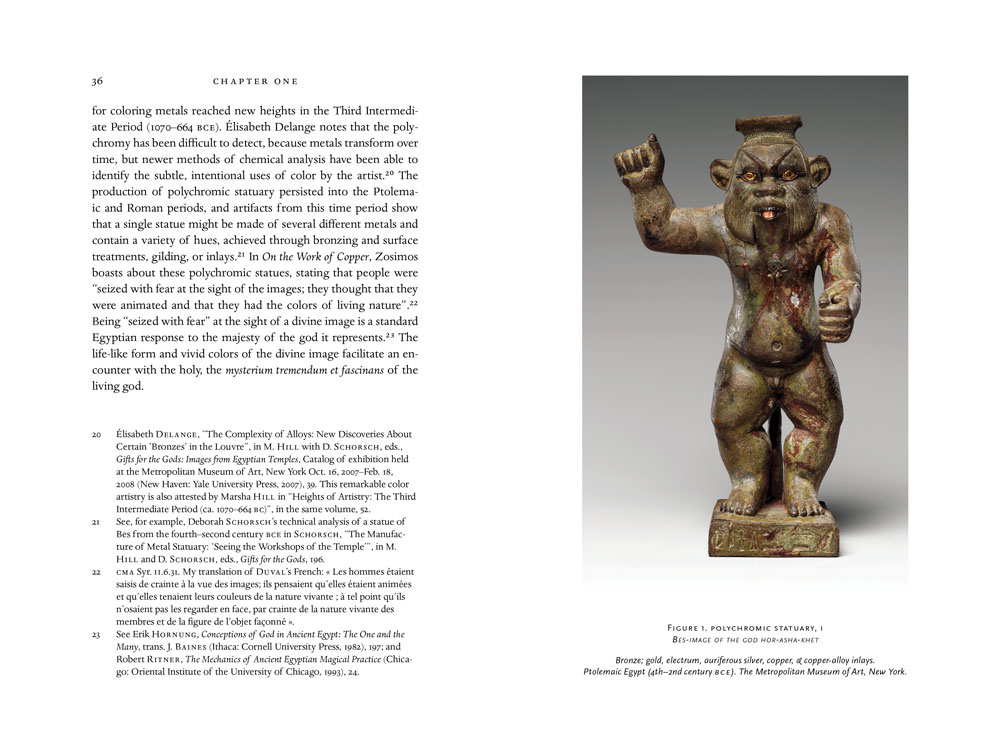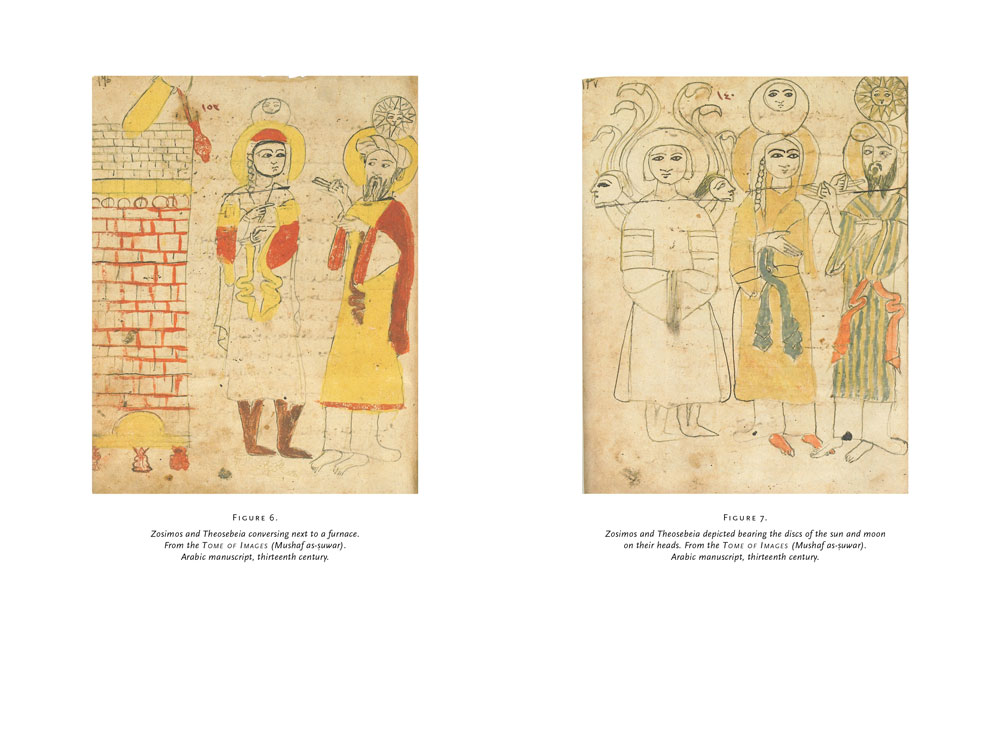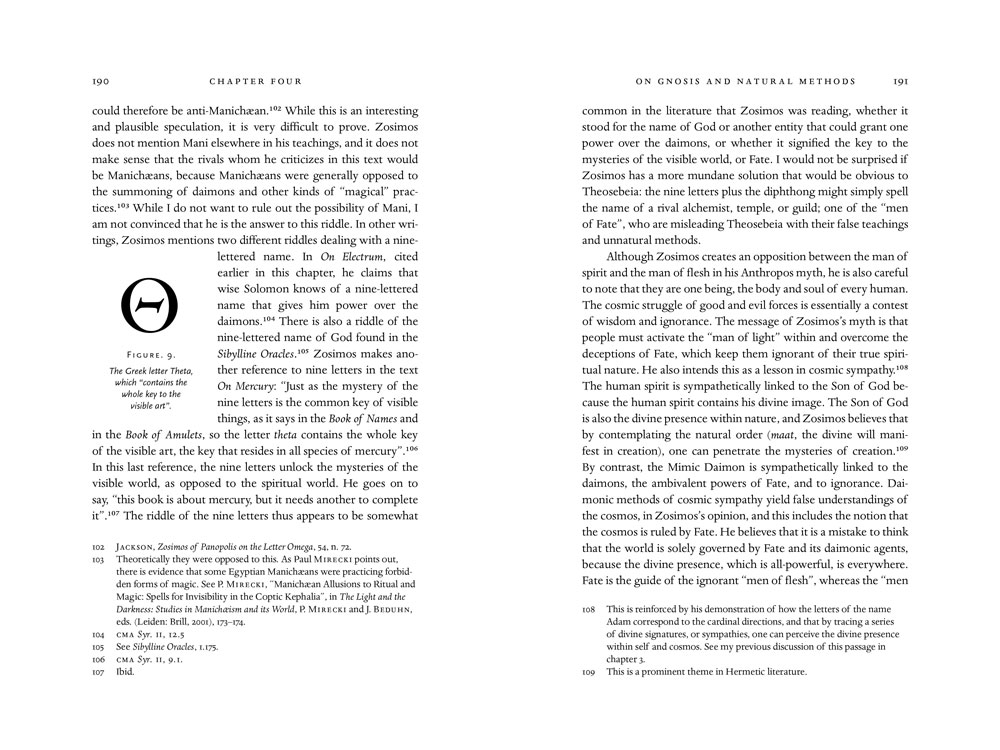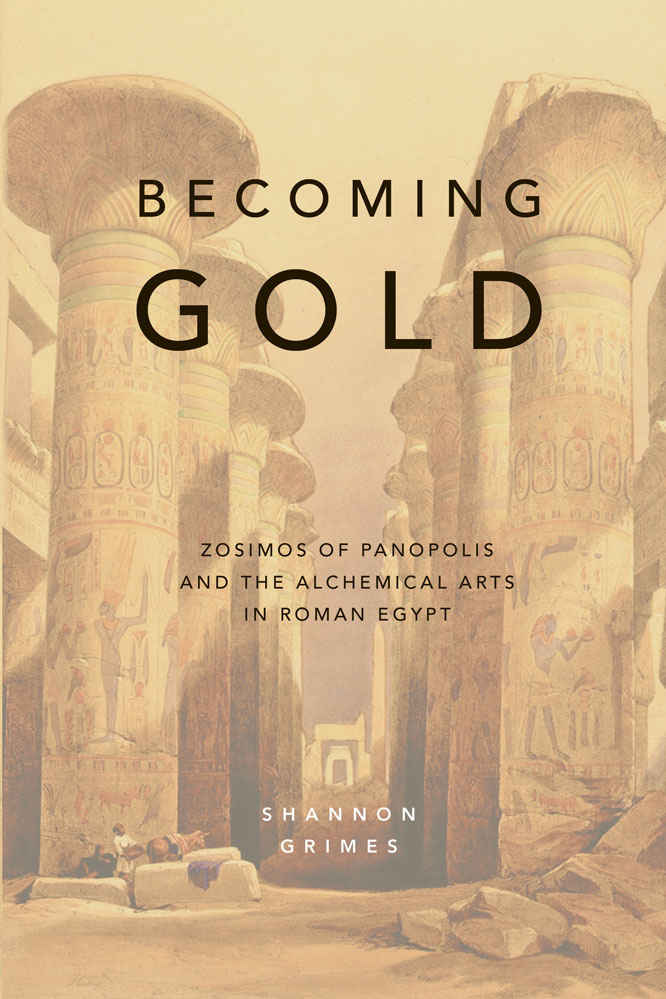
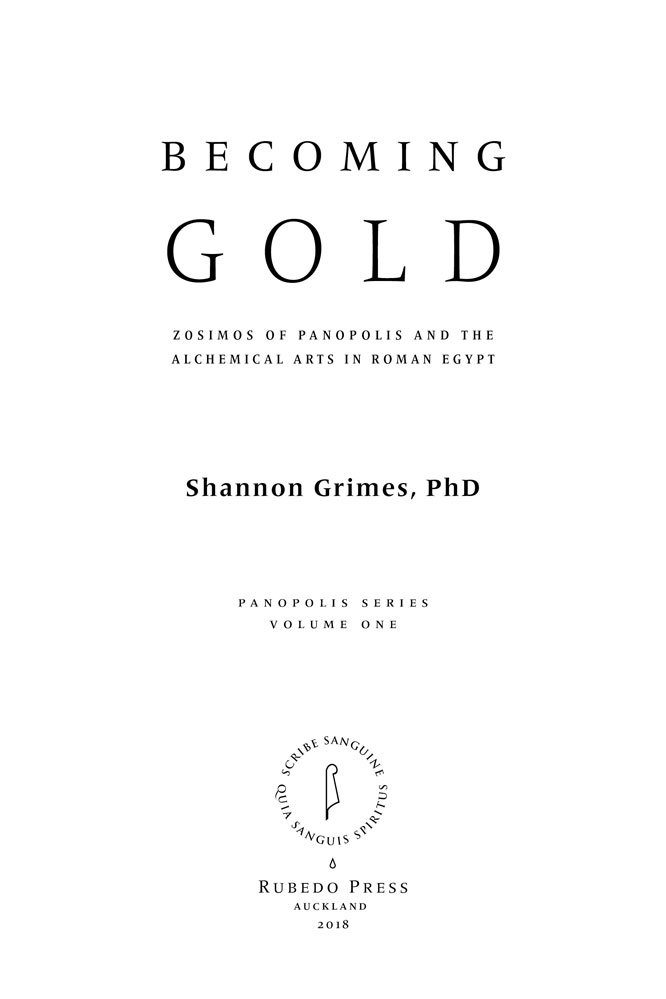
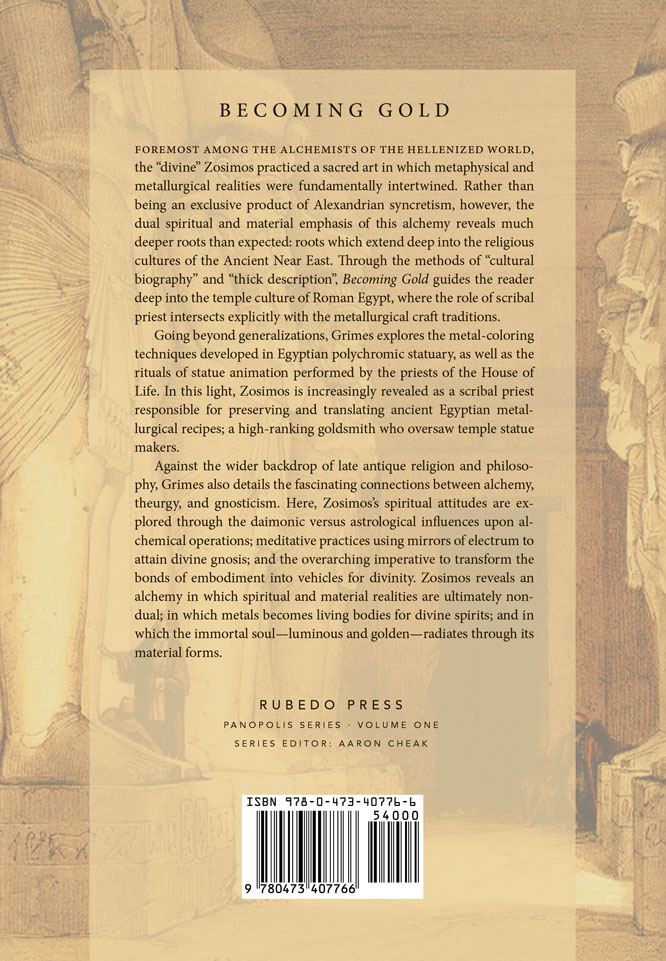
Rubedo Press 2018
6 x 9 | illustrated | colour
December 2018
Available now
(Shipping Commences January 2019)
NZD $42.00 (paperback)
NZD$58.00 (hardback)
Price listed in New Zealand Dollars.
Approximate price in other currencies:
GBP £22.00 | EU €25.00 | USD $28.00 (paperback)
GBP £29.00 | EU €34.00 | USD $39.00 (hardback)
Becoming Gold
Zosimos of Panopolis and the Alchemical Arts in Roman Egypt
Shannon Grimes, PhD
FOREMOST AMONG THE ALCHEMISTS of the Hellenized world, the “divine” Zosimos practiced a sacred art in which metaphysical and metallurgical realities were fundamentally intertwined. Rather than being an exclusive product of Alexandrian syncretism, however, the dual spiritual and material emphasis of this alchemy reveals much deeper roots than expected: roots which extend deep into the religious cultures of the Ancient Near East. Through the methods of “cultural biography” and “thick description”, Becoming Gold guides the reader deep into the temple culture of Roman Egypt, where the role of scribal priest intersects explicitly with the metallurgical craft traditions.
Going beyond generalizations, Grimes explores the metal-coloring techniques developed in Egyptian polychromic statuary, as well as the rituals of statue animation performed by the priests of the House of Life. In this light, Zosimos is increasingly revealed as a scribal priest responsible for preserving and translating ancient Egyptian metallurgical recipes; a high-ranking goldsmith who oversaw temple statue makers.
Against the wider backdrop of late antique religion and philosophy, Grimes also details the fascinating connections between alchemy, theurgy, and gnosticism. Here, Zosimos’s spiritual attitudes are explored through the daimonic versus astrological influences upon alchemical operations; meditative practices using mirrors of electrum to attain divine gnosis; and the overarching imperative to transform the bonds of embodiment into vehicles for divinity. Zosimos reveals an alchemy in which spiritual and material realities are ultimately nondual; in which metals becomes living bodies for divine spirits; and in which the immortal soul—luminous and golden—radiates through its material forms
Table of Contents
List of Illustrations
Abbreviations
A Note on Conventions
Acknowledgements
Introduction
Historiographical Issues
Chapter Summaries
Primary Sources
1. Zosimos and Greco-Egyptian Alchemy, Revisited
Zosimos and Statue Making
Color Transmutation
Philosophies of Nature
2. Alchemy in Panopolis: Temples and Trade Guilds
Priests of the House of Life
Temple Culture in the Panopolis Region
Trade Guilds and Workshops
Zosimos’s Associates and Rivals
Conclusion
3. Alchemy as a Spiritual Exercise
Virtue and the Purification of the Soul
Contemplating Nature as a Spiritual Exercise
Alchemy and Sacrifice in ‘On Excellence’
‘On Excellence’: Lesson One
‘On Excellence’: Lessons Two and Three
Conclusion
4. On Gnosis and Natural Methods:
Jewish and Christian Influences in Zosimos’s Work
Hebrew Metallurgy and Alchemy
King Solomon the Exorcist
The Book of Enoch and the Origins of Alchemy
The Anthropos, or Primal Human
Jewish/Christian Colleagues
5. Spirits in the Material World:
Alchemy, Theurgy, and the Divine Cosmos
What is Theurgy?
Cosmic Knowledge vs. Theurgical Knowledge
The Divine Hierarchy
Linking Spirit & Matter through Theurgic Rites
God-making
Conclusion
6. Coda
Bibliography
Index
About the Author
About the author
Dr. Shannon Grimes (PhD, Syracuse University) is a scholar of religion and philosophy in the Greco-Roman era, with a particular emphasis on Gnostic, Hermetic, and Platonic traditions—the so-called roots of western esotericism. Her publications have focused on alchemy and cultural astronomy in the Roman period, while her research and teaching explores religious views of nature and the cosmos, passions which stem from her own wonderment at the natural world.
Since 2006, Professor Grimes has taught at Meredith College, a women’s university in Raleigh, North Carolina, where she is currently head of the Department of Religious and Ethical Studies. She teaches courses in world religions, early Christianity, philosophy, and environmental ethics, and has had the pleasure of leading several study abroad programs in Iceland and Italy.
